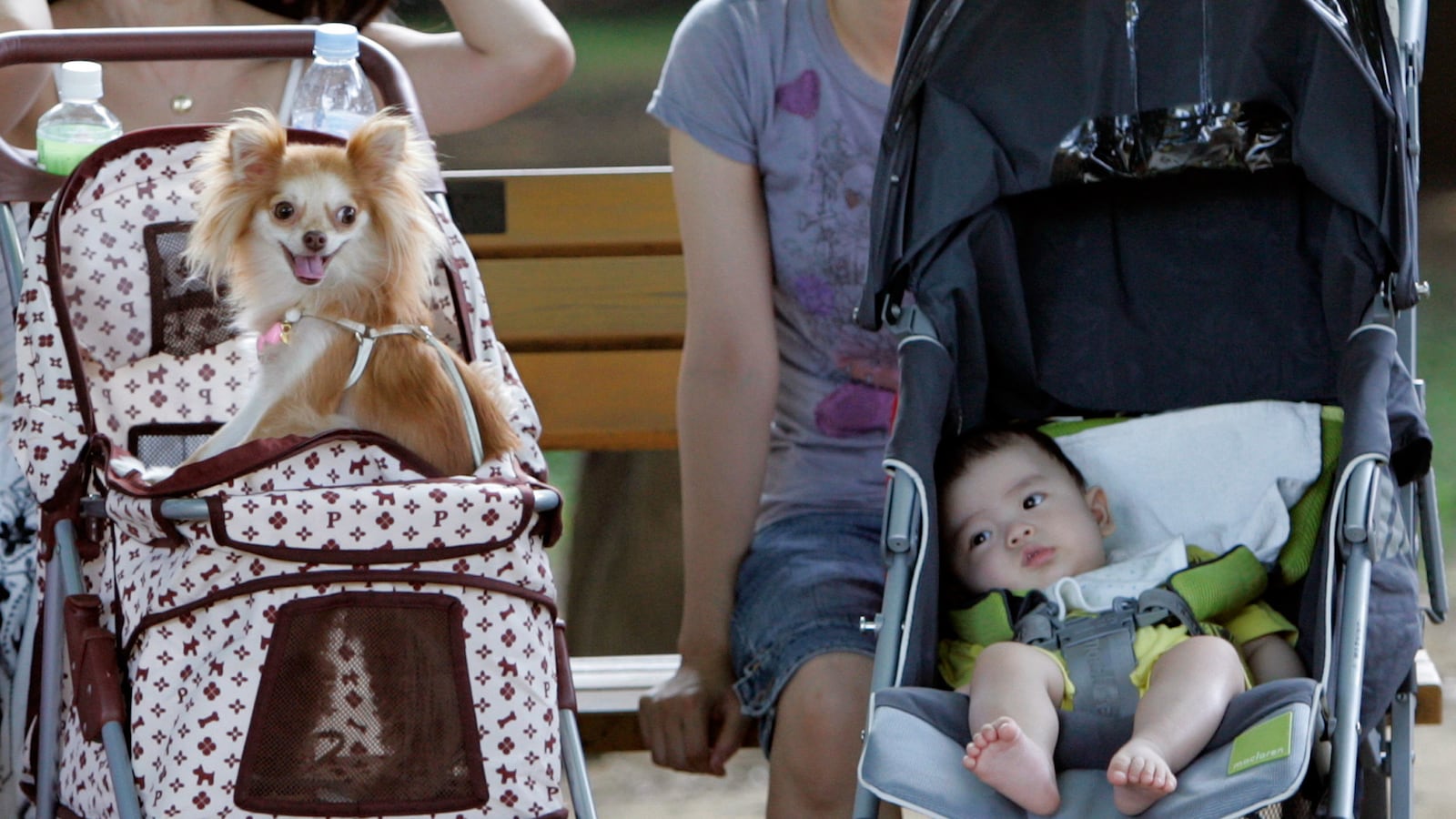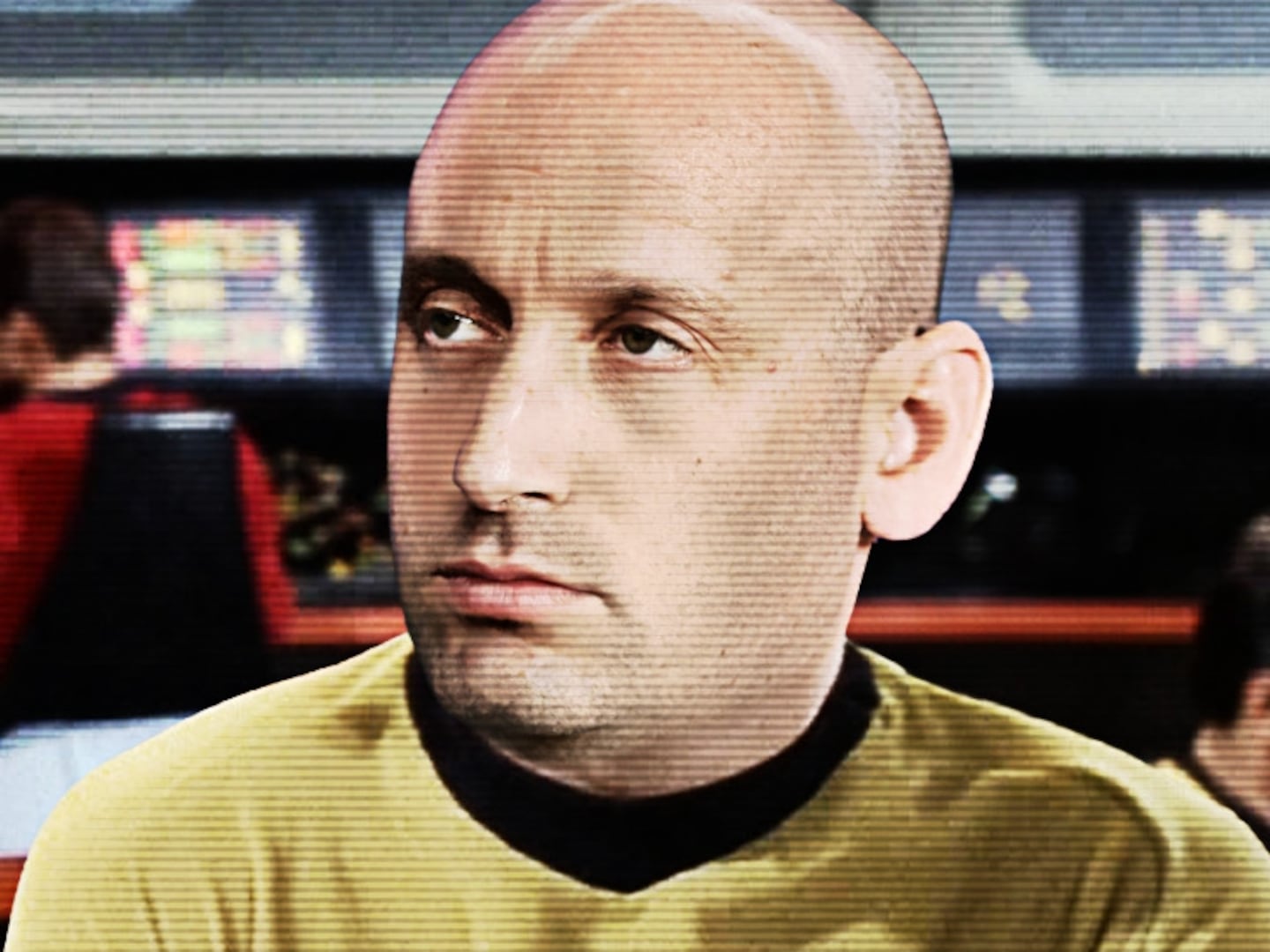Pope Francis came into office on a wave of hope that finally the world would have a progressive pope instead of the string of throwbacks with retrograde ideas who had come before. He’s since then been busy dashing those hopes, one speech at a time, demonstrating that he has zero intention of actually bothering to learn about people’s real lives and needs before telling them how to live their lives. Now he’s moved on to picking on childless couples, with a little extra shade thrown at pet ownership. Oh goody, just in time for Adopt-A-Cat Month.

Speaking from his home in the Vatican on Monday, Pope Francis warmed up by shaming people for enjoying their lives. “This culture of well-being from 10 years ago convinced us: It’s better not to have children! It’s better! You can go explore the world, go on holiday, you can have a villa in the countryside, you can be care-free.” Then he dragged Fido into, griping, “Maybe it is better, more convenient, to have a little dog, two cats; and the love goes to the two cats and the little dog.”
Then came the warning of the miseries that await you foolish vacation-having cat owners if you don’t get with the “fruitful” marriage: “Then, in the end this marriage comes to old age in solitude, with the bitterness of loneliness.” Ah yes, the threat wielded against the deliberately childless since time immemorial: Conform or you will regret it!
My first instinct, as a deliberately childless person myself, upon reading Pope Francis’s remarks was to think, “If you think having children is so important, then why don’t you go first?” But while sarcasm is a satisfying hobby, it’s perhaps better to look to empirical science to answer the question of whether or not it’s actually true that childless people will be punished with loveless marriages and age into loneliness.
Luckily, there’s been a lot of research into both those questions. In fact, the question of whether or not having kids makes marriages happier or not is one that has been looked at again and again, to the point where you start to wonder if they’re trying to get a different result this time. The answer keeps coming back the same: Childless couples have happier marriages, on average.
Or, to be more specific, studies that measure the day-to-day satisfaction of parents shows that satisfaction with your marriage starts to decline rapidly when you have your first baby, goes up and down with the stresses of child-rearing (with a particular low point around adolescence), but it stays relatively low, only rising again after the kids move out of the house. The daily grind of child-rearing and the stress of sharing responsibility seem to be a big part of it. That may explain why mothers are less happy than fathers. After all, they spend more of their time with the children.
Nor is it true that childless people are doomed, as the pope warned, to be lonely and sad in their old age. A 2003 study that looked specifically at this question found that having children was no guarantee against loneliness in old age. After surveying nearly 4,000 people ages 50 to 84, researchers found no difference in the loneliness rates of people with children and people without children. Common sense should suggest the same. Relying on a phone call a week from your kids is hardly a panacea for loneliness. Non-lonely seniors are usually the ones with plenty of friends, and being able to make friends isn’t dependent on your status as a parent or not.
None of this means that people who are drawn to parenting should feel wrong or guilty about their choices, of course. Parents may be less happy with their relationships and generally crankier than non-parents, but they also tend to rate their work as highly rewarding. For those who want it, trading off daily happiness for the sense of satisfaction that comes from raising a child is usually worth it. And if having a child is the right choice for you, there’s no reason to have your friends validate it by having kids of their own, regardless of what’s best for them.
Of course, there are some people who want very badly to be parents but, because of infertility, aren’t able to. Imagine how they must feel—hearing the pope claim that childless couples are doomed to misery, loneliness and broken marriages could cause them a lot of needless dread and heartache. Luckily for them, the science runs directly against his thoughtless posturing about the importance of children.
But these statistics also demonstrate amply why it’s not foolish for a childless person to be happy with his or her life and decide not to fix what isn’t broken. In fact, society would benefit strongly if more people felt that childlessness was a legitimate life option. Children don’t benefit from being raised by parents who went into parenthood ambivalent about the whole endeavor and feeling like they had to do it for no other reason but to conform to social expectations (or the pope’s scolding). Some parents step up to the plate, but some will have feelings of resentment they can’t articulate but their kids will probably pick up on. Why burden children with that?
The fact of the matter is that what the planet probably needs now is more people picking the childless lifestyle. While fertility rates are falling, the population is still growing at alarming levels, recently crossing 7 billion people. The low estimate for expected population levels by 2050 is 9.3 billion and may be as high as 11 billion. “Under either forecast, scientists say, living conditions are likely to be bleak for much of humanity,” writes Kenneth Weiss in the LA Times as part of a five-part examination of overpopulation.“Water, food and arable land will be more scarce, cities more crowded and hunger more widespread.” For Americans, opting out will have an even more outsized impact, since the average carbon footprint of an American is significantly higher than the world average.
Nor is there any reason to think that people who don’t want to have children of their own should nonetheless still consider adoption. While most people believe there’s a glut of adoptable children out there looking for a home, in reality, the demand for babies has so outstripped supply that the international adoption market has been rocked by scandals regarding the unethical procuring of children.
On the other hand, there is, in fact, a glut of perfectly healthy and well-behaved dogs and cats that need homes. According to the American Humane Association, there are likely millions of adoptable animals in the United States alone, languishing in shelters and in desperate need for someone to give them some of that pet love that the pope sniffed at. So if you’re feeling like being one of those “carefree” people whose “love goes to the two cats and the little dog,” don’t let Pope Francis make you feel bad. The world needs more people like you.






